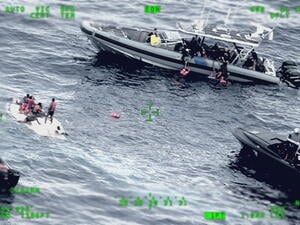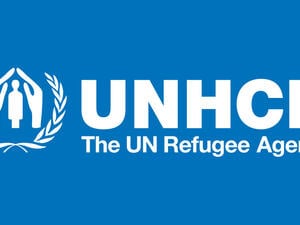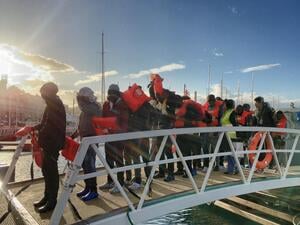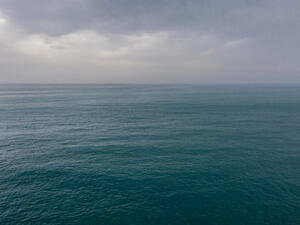UNHCR campaign spreads awareness about dangers of Yemen sea crossings
UNHCR campaign spreads awareness about dangers of Yemen sea crossings
UNHCR, the UN Refugee Agency, today launched a major campaign to spread awareness about the dangers of crossing the Gulf of Aden and Red Sea from Africa to war-stricken Yemen and highlighting the horrendous conditions and rising risks in Yemen.
More than 117,000 refugees and migrants arrived in Yemen in 2016. Many were lured by smugglers to take the perilous boat journey across the high seas in search of protection or better livelihood prospects. UNHCR is alarmed that so many people are heading to a country where the conflict is worsening, displacement is growing, and arrivals face a very uncertain future.
“It’s a humanitarian catastrophe inside Yemen,” said Amin Awad, UNHCR Middle East and North Africa Director. “We have to speak out. UNHCR cannot sit by while so many people, mainly young, board smugglers’ boats after making uninformed decisions about Yemen and the desperate and dangerous situation there.”
UNHCR has launched the campaign with the help of prominent musicians from the region – led by singing star and former refugee Maryam Mursal – who have created a song with key messages to make people think very carefully before deciding to cross to Yemen. The country has been torn by war since March 2015 and an estimated 7,100 people have been killed, 44,000 injured, and more than 2 million displaced.
Almost 19 million people are in need of humanitarian assistance. Although Yemen is a signatory to the 1951 Refugee Convention and its 1967 Protocol, UNHCR believes that war and insecurity mean conditions there are not conducive for asylum.
UNHCR has long been warning against the risk of crossings to Yemen. Prolonged conflict and insecurity facilitate the proliferation of criminal networks targeting new arrivals. Women and children are also at particular risk of sexual violence and trafficking. UNHCR has received reports of physical and sexual abuse, deprivation of food and water, abduction, extortion and forced labour by smugglers and criminal networks as well as arbitrary arrest, detention and deportation.
For new arrivals seeking international protection, access to asylum systems in Yemen is extremely challenging and individuals may be unable to register their asylum applications or have their presence documented by the authorities, particularly in the north of the country. Prevailing insecurity and war seriously restrict the ability of UNHCR and other humanitarian organizations to reach out to the population in need of humanitarian assistance.
The song and video at the core of the multi-lingual campaign were created earlier this month in Cairo by Mursal and fellow musicians, Aarmaanta from Somalia, Yeshie Demalash, Dawit Nega and Tadele Roba from Ethiopia and Hany Adel from Egypt. They helped create the music, devise the messages and write the lyrics during a workshop with local musicians and refugees, including shipwreck survivors with harrowing tales. Aaarmaanta’s song “Tahriib” sowed the seed for the creation of “Dangerous Crossings,” with the Somali lyrics forming the basis of the chorus.
Their song carries the message that the sea crossing can be deadly and, referring to often ruthless smugglers, it urges people to think hard before they leave. The song and video will help spread the message through social media and other platforms, including in languages common in the area.
The music was arranged by acclaimed Hollywood producer George Acogny and the video was directed by Amr Salama, a young Egyptian film director. The campaign is being launched in collaboration with the International Emerging Film Talent Association (IEFTA), a Monaco-based international NGO.
Please click here and register to get access to all related multimedia products.
For further information:
- In Sana’a, Shabia Mantoo, [email protected], on +967 71 222 5121
- In Geneva, William Spindler, [email protected], on +41 22 739 8956 or +41 79 217 3011
- In Cairo, Ragnhild Ek, [email protected], on +20 12 004 21996
- In Cairo, Tarik Argaz, [email protected], on +20 12 835 79832







